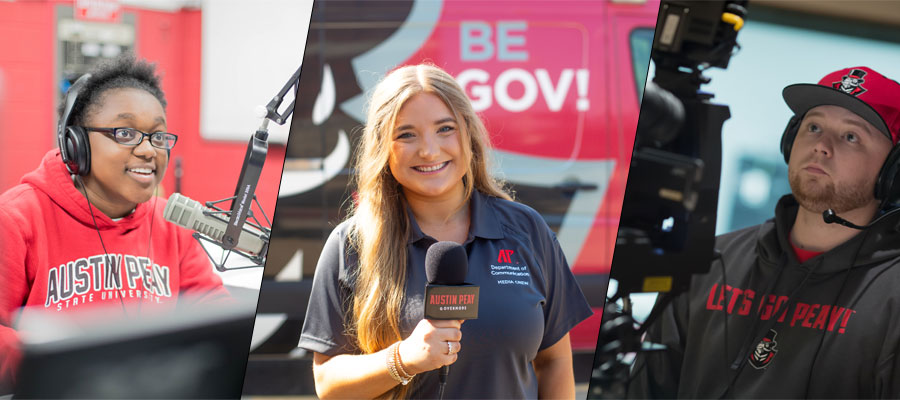Programs of Study

Unlock your potential and explore a future in communication with our diverse and dynamic programs. Whether starting your journey or advancing your career, we offer opportunities tailored to your goals.
Undergraduate Programs
Our undergraduate programs provide a strong foundation across various communication fields, allowing you to choose from:

Dive into Broadcast Media, Journalism, or Sports Communication for hands-on experiences that prepare you for the fast-paced media world.

Develop critical skills in Corporate Communication, Public Relations, or as an Information Specialist, with courses designed to meet current industry demands.
Explore our flexible minors to complement your major and broaden your career prospects.
Discover Your Path in Undergraduate Communication
Graduate Programs
Our graduate programs are designed to hone your skills and expand your career horizons with specializations that include:
-
Corporate Communication
-
Gain versatile skills applicable in various professional settings.
-
-
General Communication
-
Customize your studies to align with your career ambitions or prepare for doctoral studies.
-
-
Marketing & Media Management
-
Prepare for leadership roles in marketing communications and media management with advanced, targeted knowledge.
-
Begin your journey to becoming a leader in the communication field.
Join us at the Department of Communication and transform your passion into a profession. Take the next step by applying for Admission to APSU!
Apply Today